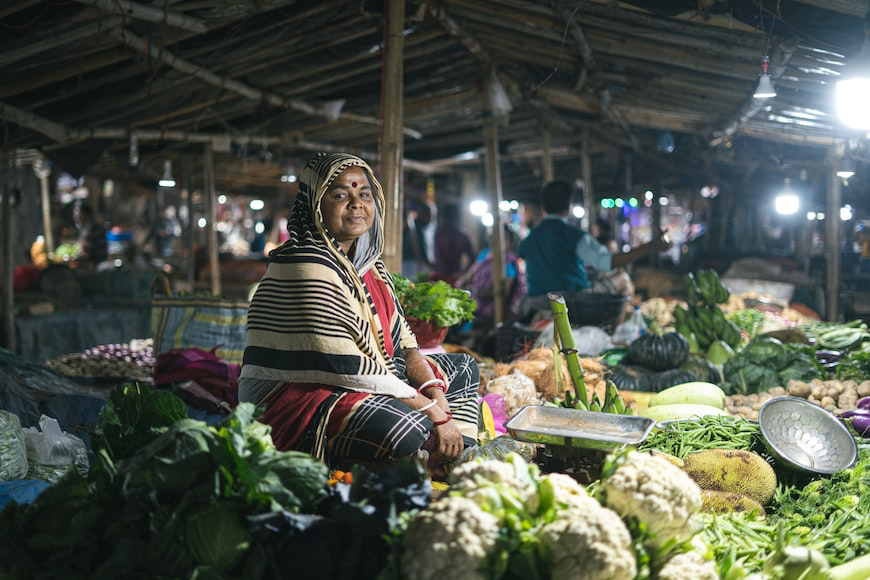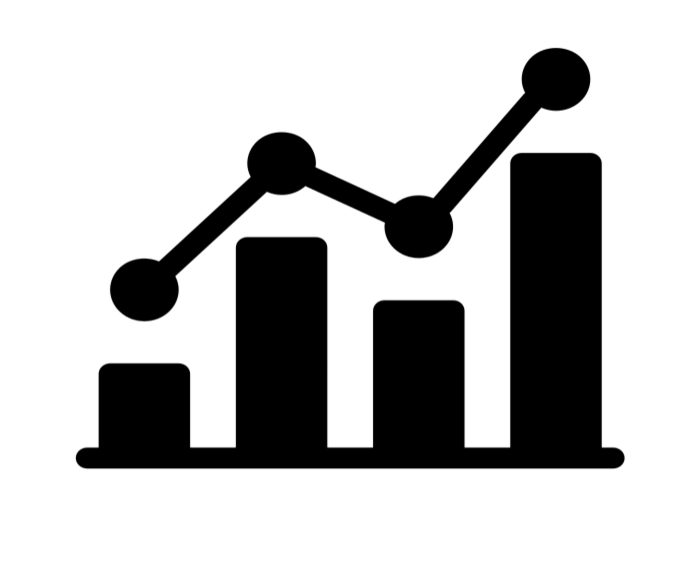
Despite economic growth and improving educational attainment, India’s women remain on the margins of the country’s economy. As compared to men, far fewer women enter the workforce, and frequently enter and exit employment over short periods of time. Worryingly, instead of expanding, the historically low share of women in the workforce has shrunk further in recent years.
This has serious consequences, both for the lives of Indian women and for the country at large. For one of the fastest growing economies of the world, India’s gendered patterns of employment remain a serious concern.
At CEDA, with the support of the Bill and Melinda Gates Foundation, we have embarked on an ambitious project to understand and find ways to overcome the demand-side barriers that are keeping women out of the workforce. To achieve this, we are taking a three-pronged approach – Inform, Investigate, Intervene – in order to enable women’s entry, retention and progression in India’s workforce.
Fewer than a fifth of women (age 15+) in India are part of its labour force. This is not only much lower than the global average, worryingly, it has been shrinking in recent years (World Bank, 2022).

The persistently low (and in recent decades declining) share of women in India’s workforce despite impressive progress in women’s educational attainment and overall economic growth remains an enigma. While there exist widespread attempts to understand and find ways to address the skew, the gender gap in the workforce has been unyielding.
The issue of low and declining female labour force participation (FLFP) in India needs to get the attention it deserves – it is being debated and discussed actively within several circles: academic, media, policy makers, advocacy groups and international multilateral organisations. FLFP matters not only because it is a major component of gender inequality, but also because the absence of women in productive and paid work implies that India is losing out on substantial potential increases to its GDP.
However, the mainstream view of these skewed employment patterns largely focuses on the role of ‘supply side factors’ (such as sticky and rigid patriarchal socio-cultural norms, marriage, motherhood, sexual harassment in public spaces) that prevent women from participating in economic life in their full capacity.
We believe that while these are very important and real issues that affect women’s lives in critical ways, their correlation with FLFP in India is not as clear-cut. Further, factors accounting for the persistently low level of FLFP are not always identical to the factors leading to the decline in FLFP in the last two decades. Importantly, several societies around the world, with similar (and sometimes harsher) patriarchal norms have been able to create enabling environments for women to participate in their economies in much larger numbers. In contrast, India’s workforce remains heavily and stubbornly male despite notable progress on several indicators of gender equality.
At CEDA, we are working to find ways to expand our understanding of what constrains women’s workforce participation in India, and how their entry, retention and progression in the workforce can be facilitated.
To achieve this, our project, ‘Partnering with the private sector for women’s economic empowerment’, is taking a novel approach for unravelling the puzzle – moving ahead from focussing only on “supply side” barriers (those that prevent women from entering the labour force), the project will pioneer research into the “demand side” barriers that thwart their entry into the workforce. What happens when women want to work and are looking for opportunities? How many and what kind of jobs are available to them? How are companies and employers facilitating the entry and retention of their women employees? Are there barriers that exist at the workplace that push back women from being able to work in their full capacity?
These are some of the many questions that we will try to answer through hard, evidence-based and pioneering research led by some of India’s foremost economists and in collaboration with private sector partners and stakeholders. We will also draw upon these insights and work with employers to design and test interventions that could help address these demand-side barriers and enable women’s entry and progression into the workforce.
Increasing women’s participation in India’s workforce: A three-pronged approach
The Partnering with the private sector for women’s economic empowerment (in short, the women’s economic empowerment) project will take a three-pronged approach to understanding the demand-side barriers keeping women out of India’s workforce and to identify strategies and measures that can address them. To this end, we aim to:

Make disaggregated gender-data available in an easy-to-use format through a dedicated gender data portal

Conduct research to understand women’s preference for entrepreneurship as well as to understand the job market in India for women

Design and test impactful interventions in collaboration with private sector stakeholders that work in the short to medium term
The importance of disaggregated, accessible and open-sourced data cannot be emphasised enough, and yet despite a wealth of data across indicators, there is a paucity of gender-disaggregated data in India. Where such data exists, it is often scattered across platforms and websites, or available in formats that are cumbersome to use.
Our project hopes to change this - we are building a gender data portal with the vision to design it to be the go-to source for all gender-related data on India. This will be a specialised, state-of-the-art data hub, which will present gender statistics for India, across time and regions within the country, on a broad range of spheres. Our editorial team will also work to demystify this data and will analyse and publish key narratives and patterns to help inform the policy discourse and popular narratives in an evidence-backed way.

The second component of this project focuses on research on getting women into remunerative paid work: skilling, self-employment, entrepreneurship and jobs.
Over three-fourths of the women in India’s workforce are self-employed, data shows. Women own a fifth of the 6.3+ crore of unincorporated non-agricultural micro, small and medium enterprises in India (Ministry of Micro, Small & Medium Enterprises, Govt. of India, 2021). The first stream of research in this project focuses on this facet of women’s work in India: entrepreneurship.
Our research seeks to understand why women entrepreneurs choose certain occupational sectors as well as to design interventions which could enable women to choose different sectors of the workforce. The research will also assess the impact of these interventions on women’s preferences and seek to identify measures that empower women to participate in other non-traditional sectors as well.
The second stream of our research is focused on women’s jobs. Evidence from around the world points to the prevalence of gender discrimination at various stages of hiring and recruitment processes. In the Indian context, while correspondence experiments have been conducted in India to study labour market discrimination through the lens of caste and religion (Banerjee et al. 2008; Thorat and Attewell 2007), similar studies to examine the extent of gender discrimination are missing, hindering our understanding of the barriers at this stage.

Among the questions this stream of research will explore are an analysis of wordings of job advertisements to identify gendered patterns if any, and their impact on women applicants, the various barriers which impact the hiring of women in jobs, with an emphasis on locational characteristics that affect application rates by women. Lastly, this component will also dive in and understand the reported incidences of sexual harrassment cases in the workplace.
The third component of this project will study the demand-side barriers to women’s participation and advancement in the private sector, and design and pilot solutions that can help lower the same .

The Udaiti Foundation (TUF) which leads this component will be working with private sector organisations to understand gender sensitivity among human resource personnel. Based on the insights gained through surveys and interactions with Chief Human Resource Officers across high priority industries in India, TUF will design and pilot impactful interventions that can enable women to engage full time in formal work. TUF will also work to identify and curate a substantive and strategic network of ‘champions’ who can help build solidarity among partners, and can lend their voices towards making a case for more diverse workplaces.
This component will also feed into the larger work of TUF, a not-for-profit organisation working towards improving women’s economic empowerment, currently incubated at The Convergence Foundation (TCF). TUF’s work focuses on women’s employment and entrepreneurship with the two-pronged agenda of making a strong business case for hiring more women across the board, and helping women entrepreneurs with the necessary resources to build and scale their businesses.
Team

Ashwini Deshpande
Lead Investigator, Investigate
Ashwini Deshpande is Professor of Economics, and Founding Director of CEDA at Ashoka University. She leads the women’s economic empowerment project, and co-leads the research component on women’s entrepreneurship.

Anisha Sharma
Lead Investigator, Investigate
Anisha Sharma is an Assistant Professor of Economics at Ashoka University, and co-leads the research component on women’s entrepreneurship under this project.

Kanika Mahajan
Lead Investigator, Investigate
Kanika Mahajan is an Assistant Professor of Economics at Ashoka University and a member of the CEDA advisory team. She leads the research component on jobs for women under this project.

Medha Chatterjee
Research Associate, Investigate
Medha has been working on gender differences in migration, time use, and shortlisting of candidates by employers and how these are related to occupational stereotypes in India.

Neha Pandey
Research Associate, Investigate
Neha Pandey is assisting with a research on increasing women’s labour force participation through skilling, occupational diversity and entrepreneurship.

Nandhini S.
Research Associate, Investigate
Nandhini holds a master's degree in Economics from Ashoka University. She is assisting with research on the jobs component of this project.

Sabyasachi Das
Lead Investigator, Inform
Sabyasachi Das is an Assistant Professor of Economics at Ashoka University and co-leads the development of the Gender Data Portal for this project.

S.K Ritadhi
Lead Investigator, Inform
S.K Ritadhi is an Assistant Professor of Economics at Ashoka University and a member of the CEDA advisory team. He co-leads the development of the Gender Data Portal for this project.

Akshi Chawla
Sr. Program Manager
Akshi is CEDA's Director, and oversees the management of this project.

